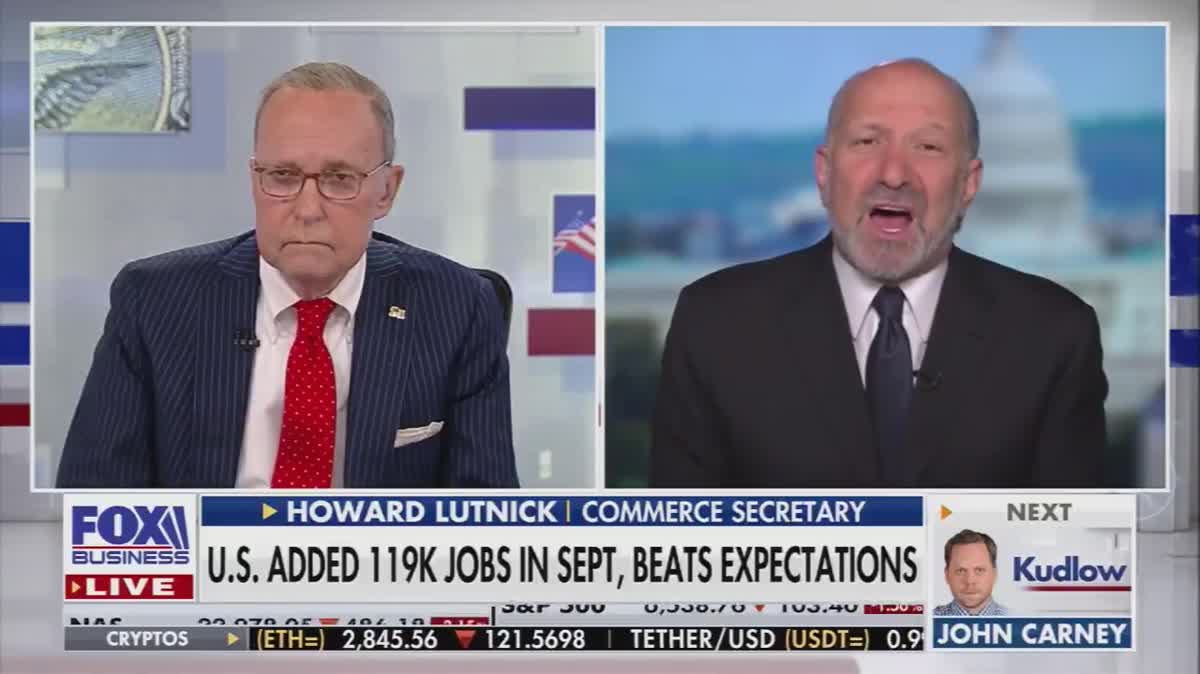President Donald Trump’s quest to gerrymander red states so that the Republican Party cannot lose the House of Representatives in 2026 hit a snag on Tuesday when a federal district court blocked Texas’ redrawn map from taking effect. Republican state legislators designed the infamous map to give their party five new congressional seats. Its passage in August made Texas the first state to sign on to Trump’s gerrymandering demands. But Texas Republicans, aided by the Trump Justice Department, pulled off this political heist so poorly that they have endangered the keystone achievement of the president’s anti-democratic attack on the midterm elections.
“They didn’t just grab what was on the shelves—they decided to break into the cash register, too.”
The case now heads immediately to the Supreme Court, which will quickly rule on whether to allow Texas to use its new map in the 2026 midterms or let stand the lower court ruling and keep it on ice. This decision will force Chief Justice John Roberts and the other Republican-appointed justices to pick between enforcing the gerrymandering rules they created and their evident loyalty to the GOP.
Over the past few years, the Roberts’ court has made excessive gerrymandering easier to get away with—even though it is both unconstitutional and incompatible with the basic premise of democracy. In 2019, Roberts ruled that gerrymandering undertaken for political gain could not be challenged in federal court. The decision, Rucho v. Common Cause, let legislators rig maps to protect their own party. Then last year, Justice Samuel Alito authored an opinion in Alexander v. South Carolina State Conference of the NAACP that made it easier to sort voters by race—even though doing so deliberately is also unconstitutional. If a redrawn map hurts minority voters but legislators can plausibly claim it was drawn for partisan gain, Alito wrote, courts must presume that “the legislature acted in good faith” and rule in their favor. The decision combined with Rucho’s greenlight on partisan gerrymandering to create a roadmap that legislatures could use to bypass the constitution’s prohibition on racial gerrymandering.
“What a message to send to state legislators and mapmakers about racial gerrymandering,” Justice Elena Kagan wrote in dissent in Alexander. “Go right ahead, this Court says to States today… It will be easy enough to cover your tracks in the end: Just raise a ‘possibility’ of non-race-based decision-making.”
Thus, in two decisions that pitted Republican versus Democratic appointees, the GOP-aligned majority created a blueprint for getting away with unconstitutional gerrymandering. “They did leave a path open for people who are not inclined to live up to their constitutional responsibilities,” says Justin Levitt, a voting rights expert at Loyola Law School.
He outlines an analogy to explain: “They said ‘You shouldn’t shoplift—and we’re leaving the store unlocked and turning around and walking out.’”
So when Trump demanded that Texas embark on a mid-decade redistricting mission, the state’s Republicans could have kept to saying they were doing it to maximize partisan gain. Under Rucho, that couldn’t be challenged in federal court. And under Alexander, they could likely even get away with using racial data to do it, as long as they didn’t say they were doing so. This wasn’t a perfect plan, because it might involve admitting to an excessive partisan gerrymandering scheme that technically remains unconstitutional. But, due to the mess this Supreme Court has made, it’s an unconstitutional scheme they could get away with.
Fast forward to this week, when two judges on a three-judge panel found the Texas map was likely an unconstitutional racial gerrymander, and blocked the state from implementing it. The reason Trump and Texas Republicans lost is that they didn’t stick to the Supreme Court’s roadmap. The state’s problems began in July, when Harmeet Dhillon, the top civil rights official at the DOJ, attempted to offer a legal rationale for redrawing the map. In a letter to Texas Gov. Greg Abbott and Attorney General Ken Paxton, she warned that the department had found Texas’ 2021 map contained unlawful racial gerrymanders. The letter falsely claimed that a 2024 circuit court opinion, Petteway v. Galveston County, meant Texas must dismantle three “coalition districts” where nonwhite majorities had been created by combining multiple minority groups together, and threatened to sue the state if it did not. Abbott quickly obliged, adding redistricting to the legislature’s agenda “in light of constitutional concerns raised by the U.S. Department of Justice.”
As the panel ruled this Tuesday, if either the DOJ or Abbott or his fellow Republicans in the legislature just admitted that this was a partisan scheme instead of targeting the districts over false claims about the legality of their racial composition, their case would be much stronger. “Had the Trump Administration sent Texas a letter urging the State to redraw its congressional map to improve the performance of Republican candidates, the Plaintiff Groups would then face a much greater burden to show that race—rather than partisanship—was the driving force behind the 2025 Map,” federal district judge Jeffrey Brown wrote, because of Rucho‘s hall pass on partisan gerrymandering and how Alexander makes proving race was used impermissibly very difficult.
The reason Trump and Texas Republicans lost is that they didn’t stick to the Supreme Court’s roadmap.
Texas might also have had a stronger case—even after they admitted they aimed to eliminate districts where minority voters held sway—had they also increased the GOP’s advantage by redrawing majority-white Democratic districts into Republican districts. But Texas Republicans not only said they picked their targets based on race, Brown found that they had left a majority-white Democratic district intact. According to figures Brown cited in his opinion, they transformed coalition districts into districts where a single racial group held the majority with almost exactly 50 percent—an improbable outcome unless race was used to shuffle voters. They even deconstructed a coalition district that votes Republican, which wouldn’t have happened if they had simply been engaged in partisan gerrymandering.
“If you like my shoplifting metaphor,” Levitt says, “they didn’t just grab what was on the shelves, they decided to break into the cash register, too. Which the court never said was okay.”
The weakness of the DOJ letter and the Petteway excuse should not have been news to Texas Republicans. As my colleague Ari Berman has pointed out, the Texas legislature heard testimony that the DOJ’s legal arguments the coalition districts were illegal and needed to be dismantled were unsound. Even the state’s Republican-run attorney general’s office pushed back on Dhillon’s letter, insisting that the 2021 Texas’ map that created the coalition districts was legal because it was drawn for partisan gain without considering race.
“That letter was hot garbage,” says Levitt, who worked on voting rights in the Obama Justice Department and Biden White House. Brown, a conservative Trump appointee, piled on in his opinion, slamming Dhillon’s letter for containing “so many factual, legal, and typographical errors.”
Once the new map was challenged and Texas needed to defend it in court, they changed their tune and said it was a partisan gerrymander all along. Brown and another district judge, Obama appointee David Guaderrama, didn’t believe them. Instead, Brown laid out legislators’ statements from the August special session about sorting voters based on race, and found that the evidence “overcomes the presumption of legislative good faith” otherwise required by Alexander. In a dissent that shocked legal observers for its personal attacks and ranting tone, Judge Jerry Smith of the 5th Circuit held that the new map likely was a partisan gerrymander and that it should be allowed to stand under Rucho and Alexander.
Now Roberts and the Supreme Court’s GOP-majority will decide whether to excuse Texas’ blundering in order to let its new Trump-advantaging map go into effect for next year’s elections. “The real question for Roberts and rest of the justices is, ‘Do I save you from your own idiocy without, by the way, a legal reason to do that?’” says Levitt. They shouldn’t, he says, but “I wish I were more confident in the result.”
If the Supreme Court allows the new map to take effect, handing Republicans up to five seats, it will be tossing the roadmap it set out with Rucho and Alexander—one that lets politicians push through racial gerrymandering as long as they don’t say what they are doing out loud. Letting Texas get away with it after politicians not only said it, but appeared to implement it, would raise the question of whether the Court has any rules it won’t let the GOP blow past for political gain.
Hanging over the case is the political reality that Texas is not the only state engaged in gerrymandering ahead of the midterms. Its new map set a national arms race in motion, with California countering by redrawing its own map.
But California, by contrast, followed the court-sanctioned path for getting away with gerrymandering that might otherwise be found illegal. After Texas kicked things off, California’s legislature passed a map to give Democrats an additional five seats, and voters approved it in November elections. The legislature and governor framed their map as a response to Texas’—an obvious partisan motivation. Official ballot materials sent to voters stressed the partisan reasons for the new map. In other words, it is precisely the kind of partisan gerrymander that Rucho and Alexander should protect, unless it can be proven that it was primarily achieved through impermissible race-based map-drawing. In an ironic twist, the California GOP and the Justice Department are suing to block the map by claiming it was motivated by race. The facts—and the same precedents working against Texas’ map—make that a very tough case.
The California map increases the political stakes of the justices’ pending Texas decision. If they block the Texas map, knowing the California one is on much stronger legal footing, they will be handing Congressional Democrats a leg-up. That would be contrary to the political goals exhibited by the court’s GOP-aligned majority, which has demonstrated its willingness to cast the law aside in order to protect Trump and his party.
And so Texas hands the Republican majority yet another test of their integrity: will they uphold the gerrymandering rules they created? Or will they let Texas’ racial gerrymandering slide?














